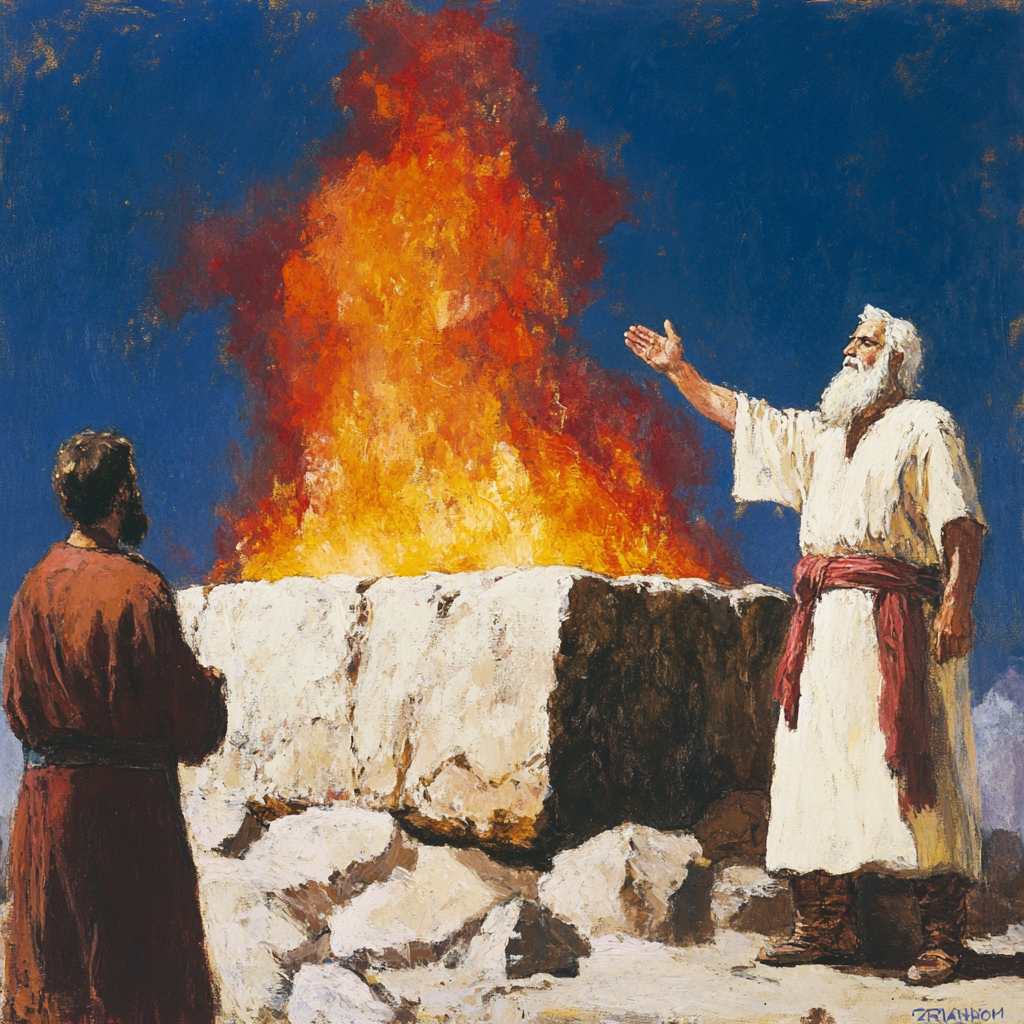Opening Verse
“And he said, Draw not nigh hither: put off thy shoes from off thy feet, for the place whereon thou standest is holy ground.”
Exodus 3:5 (KJV)
Introduction
We often rush into God’s presence without realizing where we’re standing. But Scripture shows us something powerful: before God sends us out, He calls us to stop, recognize His holiness, and prepare ourselves. Today’s verses show both stillness and movement—Moses removing his shoes on holy ground, and believers being ready to go with the gospel of peace.
Devotional Story
A woman walked into church after a long season of spiritual dryness. She wasn’t sure why she came—maybe habit, maybe hope. As the worship began, she stayed seated, arms crossed, heart guarded. Then the lyrics shifted: “We are standing on holy ground…”
She felt it. The stillness. The weight. Not guilt—just awe. It was as if God Himself whispered, “Take off your shoes. This moment is Mine.” She began to weep—not because of sorrow, but because of the presence of a holy God who still wanted her.
Later that week, she found herself at a coffee shop talking with a hurting coworker. The words came naturally, full of grace and truth. Her shoes may have been on, but her feet were now shod with readiness. The peace she had received, she was now ready to share.
What This Means
Exodus 3:5 reminds us to pause. To remove what doesn’t belong. To see that God’s presence demands reverence. Ephesians 6:15 calls us to go—not in chaos or anger, but with the gospel of peace.
Before you run, stop. Before you speak, worship. Before you serve, recognize that you’re on holy ground.
Only those who stand still before God can walk boldly into the world for Him.
Think About This
-
Have you rushed past holy ground this week?
-
Are you ready to share the peace you’ve received?
-
What “shoes” of pride, sin, or self have you refused to take off?
Prayer
Lord, help me to see when I’m on holy ground. Teach me to stop and listen. Remove the things from my life that don’t belong in Your presence. Then, when I rise, may I walk in peace, ready to carry Your gospel to a hurting world. Make my feet swift with obedience, and my heart slow to move without You. Amen.
Closing Verse
“And your feet shod with the preparation of the gospel of peace.”
Ephesians 6:15 (KJV)









